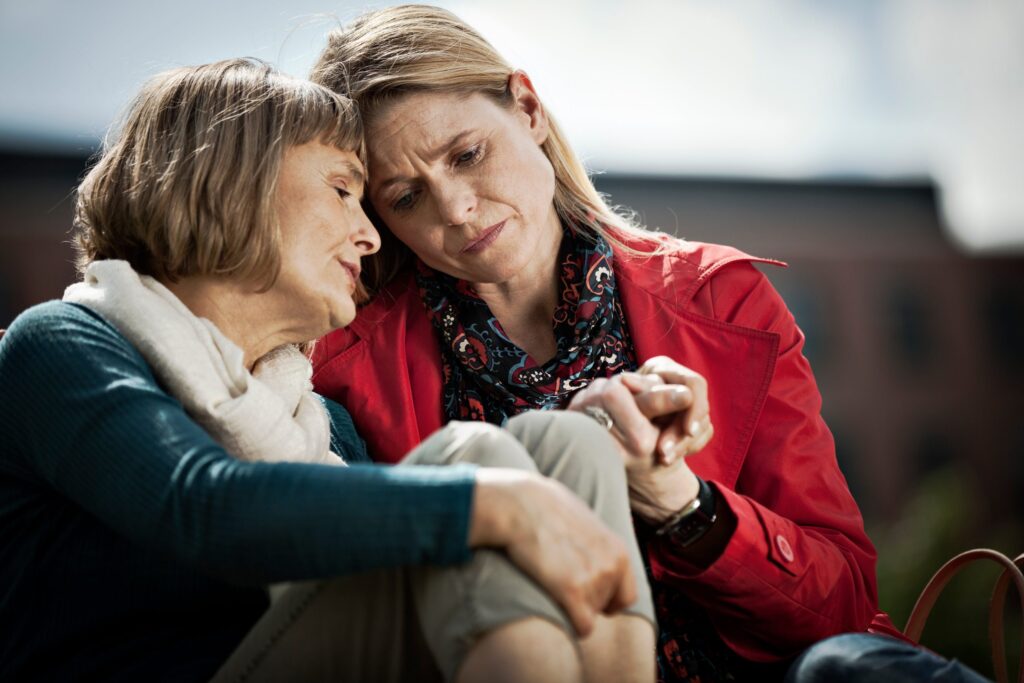Does this sound like your mom?
- She rarely leaves the house.
- Few people visit her.
- She never talks to you about her friends.
- She puts herself down.
- She feels disconnected from the world.
- She makes excuses to prevent going out.
- She seems to do nothing productive when she’s alone.
- She lives by herself.
- She appears depressed.
Your mother may be socially isolated.
What is social isolation?
Social isolation occurs when people spend too much time alone. Frequently, they avoid contact with others. Any contact they have is superficial and brief. People who are socially isolated don’t participate in meaningful, extended relationships.
What causes social isolation?
Numerous factors, including a mobility or other disability, may cause social isolation. In addition, people purposely isolate themselves when they are depressed or anxious or have low self-worth. In some cases, people are afraid of being abandoned, so they are hesitant to start and maintain relationships.
Are you your mom’s only friend?
Frequently, people who are socially isolated may turn to the one person they believe they can trust—their child. And adult children usually step up and take on the burden of being their parent’s contact with the world. Unfortunately, such a relationship can turn toxic for that very reason: You can’t be your parent’s main contact with the world. It’s unhealthy for you and your parent.
What’s the problem with being alone?
People who are socially isolated—whether voluntarily or not—run an increased risk of developing heart disease and infectious illness. Social isolation increases the likelihood of cognitive deterioration. It’s also been associated with high blood pressure. Socially isolated people are twice as likely to die prematurely.
How can you help your mom make friends?
You can’t be your parent’s lifeline to the outside world, but you can encourage her to get out or interact with others more often. Here are 12 suggestions to decrease social isolation:
- Contact a nearby senior center for activities.
- Work with your mom to develop a hobby.
- Consider pet ownership. Pets reduce feelings of isolation.
- Set up a schedule for friends and family to visit or call.
- Hire an aide to come over to help with housework and talk.
- Teach your mom how to Skype or email or use Facebook to communicate.
- Encourage daily exercise to ward off depression.
- Set up family get-togethers or outings.
- Try counseling or a social isolation support group.
- Set mom up with transportation. If she can’t drive, get her the transit schedules or the number for a taxi service. Download the Uber app or contact your local senior center to determine if they provide transportation.
- Research volunteer opportunities for her.
- Move to a housing development, such as a senior living community, specially designed to prevent social isolation.
We can help
The Arbors Assisted Living Residential Communities are designed to encourage socialization, because we know social isolation is especially dangerous for older people. From daily programs to friendly staff to the spacious dining room, all aspects of the community were specifically developed to help seniors make connections with other people. We want you to be your mom’s best friend, not her only friend.

